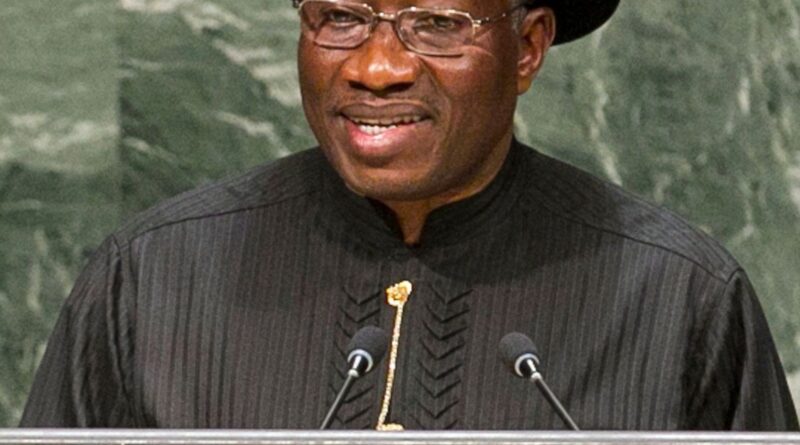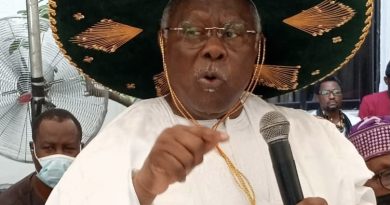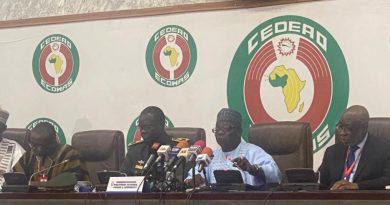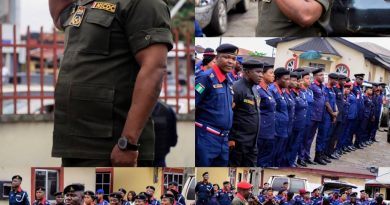GEJ Insists Problem Of Africa Are Leaders Who Fail To Respect Laws
By Bukar Bolori
Former Nigerian President Goodluck Jonathan has decried that the problems of Africa is the making of leaders who do not respect their nation’s laws, calling on the electorate to elect only leaders who will respect the laws of the land.
Jonathan, who is ECOWAS special envoy, made the call on Tuesday while officially opening the second annual retreat for special envoys and high officials representing Regional Economic Communities (RECs) on Constitutional Transitions and Unconstitutional Changes of Governments, organised by the International Institute for Democracy and Electoral Assistance (International IDEA) in collaboration with Economic Community of West African States (ECOWAS).
He said: “I believe that we need to elect leaders who will respect their laws. If our leaders – Presidents, Prime Ministers, the parliament and the judiciary – would respect our laws, I believe that 70 per cent of our problems would be solved.”
The former Nigerian President while commending the organisers of the summit, enjoined them to get leaders involved, stressing that: “I have always said that for us to move forward, key political leaders need to be involved.
“Sometimes, these conversations are very brilliant but how do we make sure it works? It is like the debate between having strong institutions and having a strong man. No matter how strong the institutions are, there are some kind of characters that trample on the institutions and nothing will happen.
“So, we need somebody who means well for the people, and who can make strong institutions work. There will be two forces jamming; the force of the president and the force of the head of an institution and the head of an institution can not stand the president, especially in African countries.”
He advised the organisers to bring African presidents and other leaders together to make key decisions on how to bring inclusivity to their governance process.
Jonathan, while admitting that the theme of the event was timely given the pace of rising insecurity, mounting social tension, and the number of unconstitutional transitions and unconstitutional changes of governments in Africa, expressed optimism that concrete and actionable recommendations would be generated from the retreat to respond in a sustainable and inclusive manner to these complex situations.
The former ruler who emphasized the need to sustain democracy in Africa, said: “I have always said that there is a strong connection between democracy and development, hence the need to deepen democracy, make it more inclusive and strengthen the institutions of governance, towards building a stable and prosperous society.
“A dialogue on inclusivity should explore the process through which RECs and Special Envoys are responding to constitutional transitions and Unconstitutional changes of governments, and the need to strengthen structures for credible elections, peace mediations and good governance.”
Earlier in his remark, Secretary-General of International IDEA, Dr Kevin Casas-Zamora, said the key finding emanating from the organisation’s signature publication, the Global State of Democracy Report which assesses democratic performance in 173 countries shows that this is the sixth consecutive year of democratic deterioration globally, the longest such sequence is witnessed since our records started in 1975.
He added that: “Over two-thirds of the world’s population now lives in non-democratic regimes or in countries where democracy is visibly retreating. Our report documents the considerable pressures faced by democratic governments everywhere: rising populism; declining trust in institutions; runaway polarization; unmet social expectations; pressing environmental challenges; and an increasingly toxic information environment.”
Casas-Zamora also said: “We document in our report the visible rise in unconstitutional changes of government, particularly in West Africa; the increase in violence in so many places in the continent, including, in tragical fashion, in Sudan; and the problematic presence everywhere of an increasingly naked geopolitical competition and of widespread dissatisfaction with the workings of democracy.”
In his keynote address, the ECOWAS Commissioner for Political Affairs, Peace and Security, Ambassador Abdul-Fatau Musah noted the excuse of insecurity used by military juntas to overthrow democratically elected leaders was not tenable against the backdrop that insecurity has continued to grow under them.
He added that it become more untenable considering that it is the sector that is saddled with security that are putting up the claim, which in actual fact should be seen as their failure.
He said it has become imperative not to leave the transition position back to democratic rule in this hands of juntas, insisting that they should be made to vacate power and put in place a transition government made of civilians.




